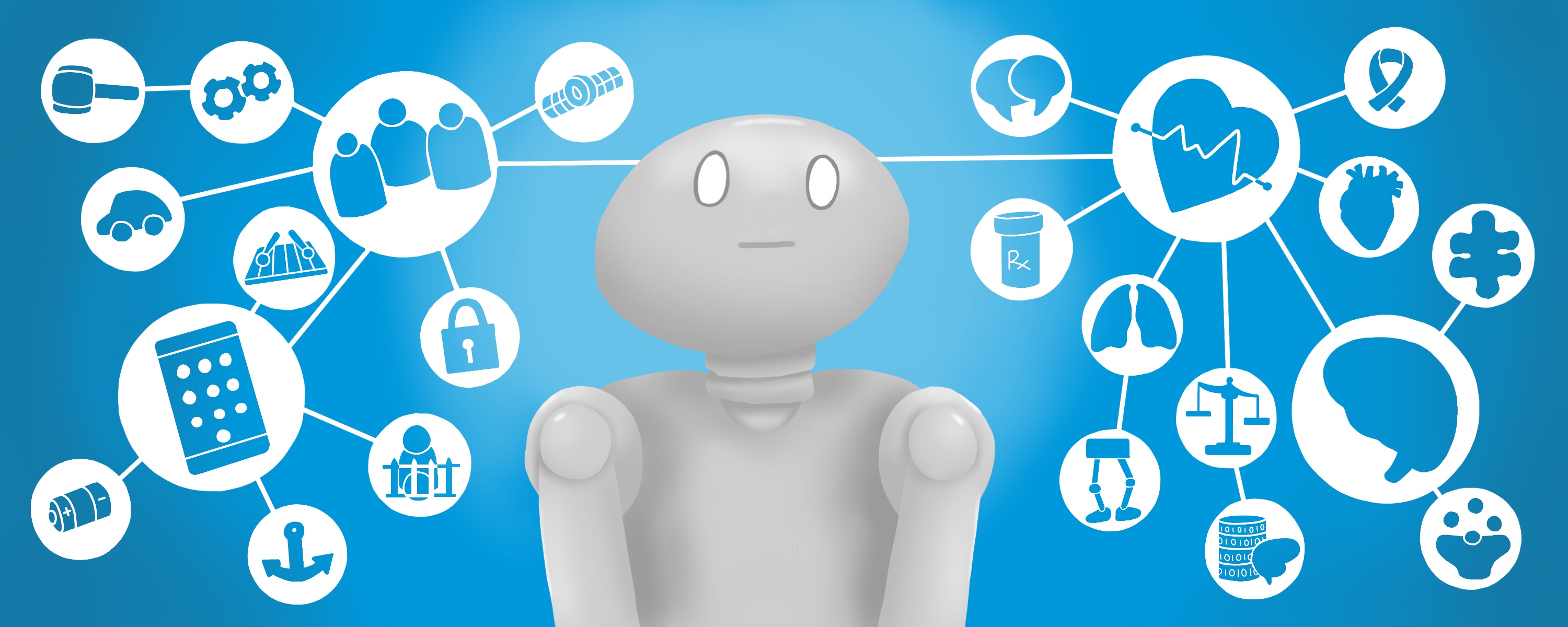SCCN Blogs
AI has arrived in the Campus
A game changer in learning
As most of the students know, admission into the college that they prefer is always hard and arduous. And it is even harder to settle in the campus as a fresher.
Everyone in the campus is stranger for the fresher. Remember the first few days when you entered the campus? You wanted to know where the administrative building is, where is the cafeteria, library, shops, where to make payments, apply for scholarships, register for drama club, where to get time table for classes and who is your guide. And you were as morbid and hesitant to ask as first standard child?
But even after getting to know the logistics within the campus, the story does not end. At 5 am in the morning you suddenly get up and realize that it is the last day for submission of the project report. What if you miss the class to complete it? What should I do?
Well, there is now perfect remedy. Artificial Intelligence (AI) has come to rescue. Just ask Chatbot. Immediately comes response. You ask again. You get response again. You talk and you get response. No more those words from stony-faced professor looking at you through top of the glasses, 'Can't you understand? I already responded to your question, you did not pay attention. That's the way you young folks now a days behave!'. Chatbot in contrast, is patient. Never in a hurry. And talks only when you ask.
What is chatbot? A chatbot is a digital program which engages in a conversation via auditory or textual methods. Such programs are often designed to convincingly simulate how a human would behave as a conversational partner. It can get used to the behaviour of the humans who is conversing based on the way and type of questions human is asking and then get 'smarter'.
The possibilities of what AI-bots can do are enormous. Through the centralised cloud chatbot (call it Alexa, Ado, Ashok or Anushka) it can assimilate, stock and branch-out the solutions to the logistic problems. With the help of professors, it can espouse the common problem solving techniques even in physics and chemistry. It can remember the most often asked technical quizzes, digest the right answers and apply them in similar cases to improve and invent responses further and get more tech-smart.
The campuses are transforming. They are no longer 'hot spots'. They are now 'Hope Spots'. They are beginning to harness the power of AI to improve both learning and the student experience. It can, like health watch on your wrist, measure attendance, compare your grades, profile your learning curve, inform you on-line on real time basis the gaps in your learning process and whether you are performing on par, or on top 10 percent of the class. With this data, it can nudge you, for example, if you need to get a distinction to reach the grade average. Student can ask, for example "Hey Anushka, tell me how much I am lagging behind in grades comparing the best in class?", or "Hey Anushka, which universities in USA are likely to accept me with some financial assistance?". The response to latter question is now possible, if the USA universities are connected through cloud networking on real time basis.
AI tools have made entry in campuses. It would respond faster. The speed with which it would get smarter through AI will be exponential. Campuses hardly have a choice but to get 'future ready' for AI. The game-changer has arrived.
Let it be clear, though. The objective of AI is to supplement teachers, not replace them. Teachers are capable to do more than just solve students problems, respond to queries, assess the assignments and grade the answer sheets. AI would reduce their administrative workload and trim down their time to respond to repetitive questions from students. It can group the answers and grading of the assignments and respond to only once than repeating to each students. The process could be faster and more efficient. That way they can focus on more creative aspects of their courses. Such measures could benefit students too. Teachers can spend more time to respond to students' questions like, why my answer is wrong, how I could do better next time, what about this another idea as a response?
Chatbots or Digital assistants could also be one-on-one learning tool and – ironically – a more personal studying experience, which isn't possible for a lecturer with tens and hundreds of students. AI bots could help to inform 'top 10 things to remember' at the end of the class, remind students to study, keep track of how long they have been reading an e-text, and keep reminding on highlights of the courses. They could also make the study more flexible for those who have other commitments, families or live in remote areas.
And finally, digital assistance is available 24/7, ready with immediate responses. What else?
Rajendra Shende
Chairman TERRE Policy Centre
Former Director UNEP
When you subscribe to the blog, we will send you an e-mail when there are new updates on the site so you wouldn't miss them.






Comments